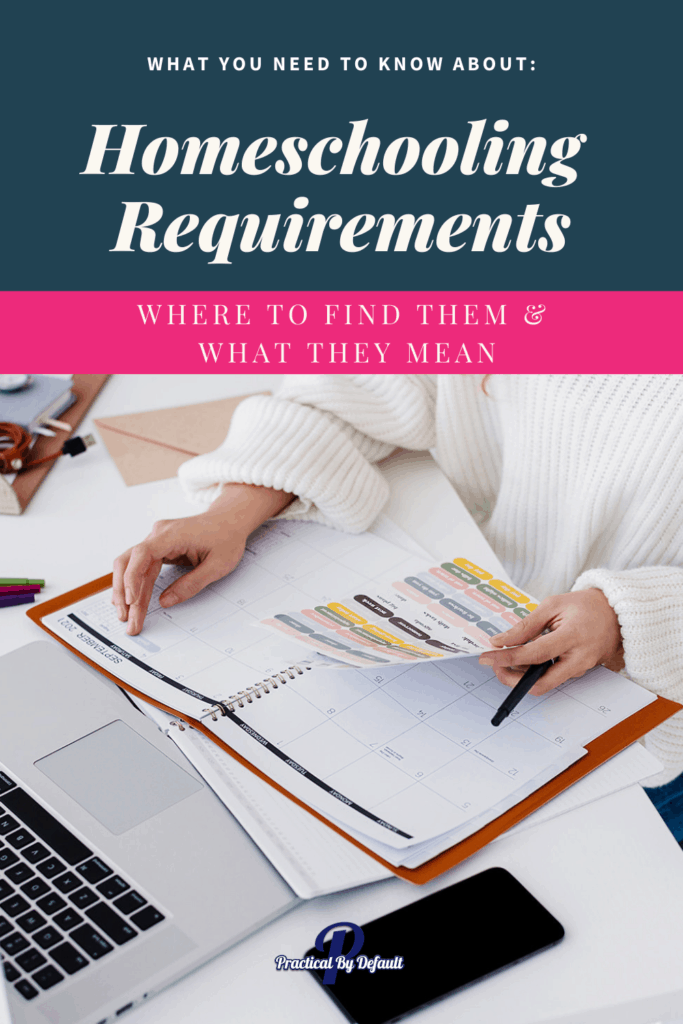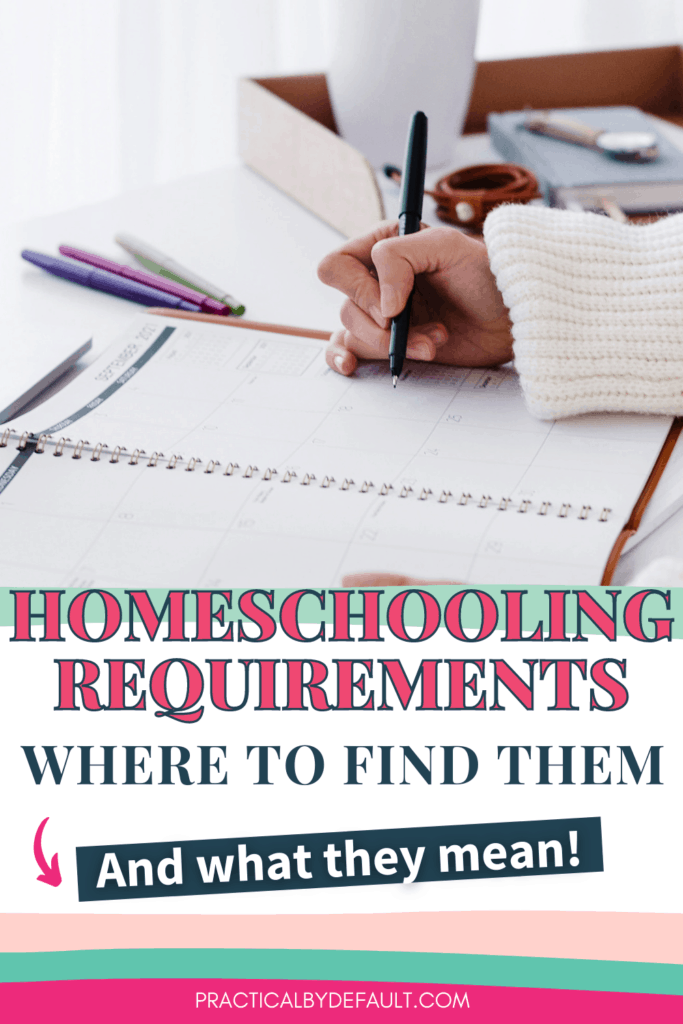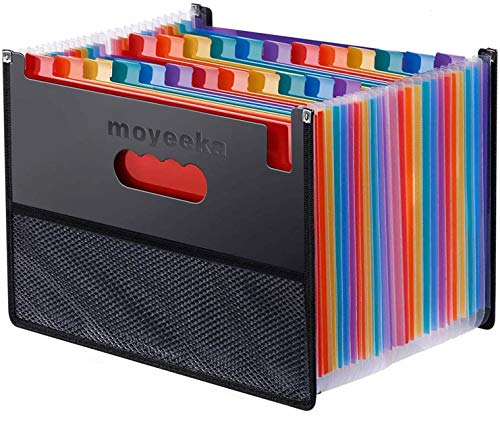Homeschooling Requirements & What They Mean
Did you know that it is your responsibility to understand your state or province’s homeschooling requirements and make sure they are met as a homeschool mom?
When I first started homeschooling, everyone and their dog seemed to have an opinion, which they shared, unasked.
This meant not only was I totally lost and overwhelmed, but I couldn’t tell if what they told me about my homeschooling requirements was true or made up!

That’s when I figured out it is best not to rely on friends and family! Oh, they mean well, really. But the problem with relying on friends and family is that they *think* they are helping, but they may lead you astray in reality.
Let’s talk about why you need to know your homeschooling requirements, where to find them, and what those terms mean.
Why You Need To Know Your Homeschooling Requirements
When you are figuring out how homeschooling will work for your family, one of the first steps is knowing and understanding your homeschooling requirements.
Why is this important?
This is important because the law for homeschooling varies depending on where you live. In most of the world, it is legal to homeschool. You must familiarize yourself with what your province/state/territory requires of you.
In some areas, meeting the homeschooling requirements is as simple as signing a form each year stating you intend to homeschool. In others, it is a much more complicated process.
While many well-meaning people, offline and online, are happy to fill you in, they can unintentionally pass along inaccurate information. Or the information could be out of date!

Bad idea! The last thing you want is to have a conflict that could cause significant trouble for your family and your intent to educate at home.
Therefore, it is your responsibility to do the research. You are responsible for complying with the law in your place of residence.
I am not a lawyer. I can not give you legal advice. However, I can tell you how to find the homeschool law where you live and help you understand what those terms mean.
How to Find Your Homeschooling Requirements
Homeschooling requirements vary depending on where you live in the world. Each state and province has its own requirements that you need to follow.
Here are a few ways you can find out what your homeschooling requirements are:
- Visit Homeschool Legal Defense Association (HSLDA) online. (You can visit the page for the United States, Canada, or International.)
- Visit your local department of education website and search for homeschool law or homeschooling requirements.
- Google your place of legal residence + homeschool law. (An example would be “Nova Scotia Homeschool Law”)
These websites are a great place to start your research. However, what is most important is to know that you are finding legal information from a reputable source.
Don’t just take my word for it or rely on your homeschooling friend’s words. Laws can and do change from year to year and from place to place, and it’s easy for the information you hear to become outdated or incorrect quickly.
The HSLDA website is by far the easiest and most reliable way to find your homeschool law. It is also the most recommended in every homeschool group I’ve been in.
I live in Nova Scotia, Canada. Our homeschooling requirements are pretty straightforward.
While I am not a member of HSLDA in Canada, looking at their websites in both the USA and Canada, they keep updated and accurate legal information in straightforward, easy-to-understand language.
They also provide premium services for members, such as homeschooling advice, downloadable forms for your state or province, and legal help if needed.

It is good to know what is available to you in the form of support should you need help.
If you are Canadian like me, you may find this document, “Summary of Homeschool Laws Across Canada,” very helpful.
I also recommend The Canadian Homeschooler. Lisa has fantastic resources on how to get started homeschooling in Canada. Again, this is a great place to start your research into your homeschool requirements.
Homeschooling Requirements What Do They Mean?
Have you ever noticed that homeschooling tends to have its own language? Every time you learn something new, it comes with a whole slew of terms you need to know and understand.
You may be lost or confused when you look at your homeschooling requirements!
Not to worry. I’ve dug up some of the most common terms you may come across and listed what they mean, along with where you can learn more if possible.
Affidavit:
A written statement verified or shows it contains a verification, which means it is made under oath.
You may need to submit a notarized affidavit to your school district that includes specific information about your homeschool.
Certified Mail:
Mail sent through a special USPS service that allows the person to send the mail with an official receipt showing proof the item was mailed.
When the mail is delivered, the mail carrier requires a signature from the recipient. USPS will also notify the sender when their letter has been delivered.
Compulsory Attendance/Education:
This means the parents are required to make sure their children receive an education.
In homeschooling terms, it refers to the ages during which the state or province requires children to receive a formal education.
Cover School:
A cover school enrolls homeschooling children or families and offers services supportive of home education. These schools may also be called “umbrella schools” or “church schools.”
Curriculum:
A curriculum is a book, online program, or collection of materials used to teach, usually organized by grade level or topic.
Often an organized system that provides homeschool families with both scope and sequence.
What curriculum you choose to use will depend on your child and your lifestyle. I use these seven questions to help narrow down the choices.
Cyber School:
An online school, which may also be called “virtual school” or “e-school”, teaches students entirely or primarily online or through the Internet.
Cyber Schools range from public schools administered as a correspondence schools to a range of highly specialized approaches offered by public, private, parochial, and charter entities.
Please note because parents do not have full control over their children’s education, this type of school is often not called “homeschooling” even though your child is learning at home.
Days/Hours of Instruction:
Your state or province may require a certain number of school days (often 180 days) or hours of instruction (usually 900 hours) per year.
You can learn how to create a homeschool time log here, and it is good to check your law if you have any questions.
Homeschool Evaluation:
A homeschool evaluation is a form of assessment that a government-approved evaluator makes. There is no set form or format for evaluations, and every evaluator will have their own style.
You can learn more about homeschool evaluations here.
Homeschooling Options:
This term means the different ways a homeschooler can be registered in each state or province, such as homeschooling with a parent, online program, tutor, or even a cyber school.

HSLDA:
This stands for Home School Legal Defense Association.
An organization whose mission is to bring homeschool families together to provide low-cost legal defense. HSLDA can be found in Canada, the USA, and internationally.
IHIP:
This stands for Individualized Home Instruction Plan. You may be required to submit an IHIP as part of your homeschooling requirements.
You can learn more about what is included in an IHIP here.
Immunization Records:
Documentation showing proof of immunization and vaccines your child has received.
Some states require you to provide these records as part of your homeschooling requirements. However, it is good to know that you may also have the option to opt-out for medical or other reasons.
Learn more about homeschool immunization requirements here.
Notary:
As mentioned above, you may need to have your affidavit notarized.
A notary is authorized to serve as an official witness to perform acts in legal affairs, particularly witnessing signatures on documents.
Having documents signed before a notary assures others that that particular person signed the document.
Portfolio:
A homeschool portfolio is a form of student record-keeping. They can be paper, digital, complicated, or simple. It all depends on the homeschool and the homeschool requirements.
Usually, a homeschool portfolio is created for each child and for each year of homeschooling.
A portfolio may include:
- what your child has learned
- how they learned it
- what resources (such as curriculum and programs) were used
- how much progress the child made
We used scrapbooking when the kids were younger to keep a record and a binder as they got older. I stored all the paperwork in a box for later.
Disclosure: I may receive commissions for purchases made through links in this post.
Scrapbook Photo Album

Scope & Sequence:
An outline of skills and information to be taught, typically organized by grade level or by course. Provides information on what will be covered.
These are very useful for creating a homeschool transcript.
Standardized Testing:
A standardized test is a test that requires all students to answer the same questions and which are administered and graded in the same way every time.
Most of these tests are multiple-choice and include questions about reading, writing, and math.
According to Study.com, the purpose of these tests is to allow for comparisons to be made among schools regarding student achievement, ensure accountability for teachers, and have the ability to inform instruction for educators.
Supplemental Resources:
The fun part of homeschooling. Homeschool supplementary materials are used to add variety to your curriculum and often focus on a specific subject.
We use nature study, games, art, and more to reinforce our core homeschool curriculum.
Teacher Qualifications:
In some states or provinces, you may be required to have “teacher qualifications” to homeschool your child. These “qualifications” could be a high school diploma, GED, or some college education.

How Local Homeschooling Support Groups Can Help You
Understanding where to find your homeschooling requirements and what the terms mean is a good start. However, finding a homeschool support group in your local area can help you to navigate your homeschool law can be a massive help.
A few ways a local support group can help you are:
- pointing you in the right direction to find resources specific to your area
- answering your questions and helping you overcome challenges
- letting you know when updates happen
Local homeschool support groups exist to answer questions and provide moral support for homeschooling parents.
If you can’t meet these groups in person, I recommend finding an online group, such as a Facebook Group for your province or state, or form to join.

Homeschooling Requirements And Secondary Education
Does your child intend to continue their education after high school?
While knowing and complying with your homeschooling requirements is important and should not be overlooked, it is also essential to understand what your child plans to do after high school.
Make sure to take some time to talk with your teenager about what they want to study and where they want to go. Then, make a plan.
For example, each college has different requirements that your child needs to meet if they want to attend. These requirements will not necessarily be the same as the ones you need for homeschooling in your area.
It also depends on what your child wants to study. For example, if your child wants to go into law, then they will not need as many sciences as one who wants to go into the medical field.
It all depends on what they want to do and where they plan on going.
I am not saying that to freak you out but to give you a heads up. If you are worried about homeschooling high school, I recommend checking out the one resource that gave me the confidence to dive in and homeschool the high school years.
📌Don’t let this post get lost in the internet abyss – pin it to your Pinterest board now!


Hi, I’m Jen. I help working moms juggle their career and homeschool their kids by providing support, systems and tools. You are warmly invited to Join the Online Community Here!









